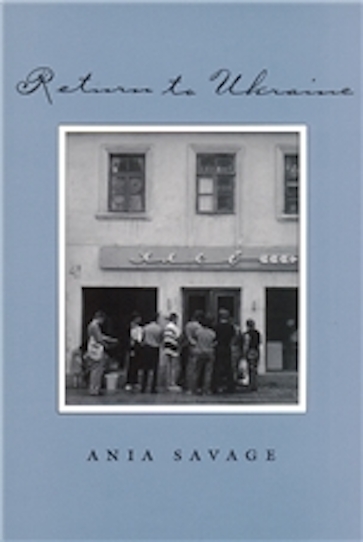Return to Ukraine
978-0-89096-916-8 Cloth
6.12 x 9.25 x 0 in
272 pp. 22 b&w photos.
Pub Date: 01/01/2000
Available
Savage, a journalist traveling to teach at Kyiv State University, records in vivid detail her experiences in her homeland, including the political turmoil that gripped Ukraine as it struggled to establish a democracy. In a moving subtext, Savage also describes the intense emotions she felt traveling with her mother, who at age seventyfour was suffering from the early stages of Alzheimer's disease.
Savage skillfully threads these personal themes into narratives of Ukraine's larger history, events that include stumbling upon the excavation of a mass grave from the Stalinist era. She moves through the discoveries of her trip with an honest and passionate voice as she witnesses the rebirth of a nation and as she and her family reconnect with their past. Savage also describes the experience of working in Kyiv and speculates on how her Ukrainian heritage and American youth and education combine to shape her view of the people and places she encounters in Ukraine.
This story will prove fascinating to historians, sociologists, and general readers alike, especially those with an interest in the rise of democracy in Eastern Europe, life in those troubled countries, or personal struggles with memory and its loss. In addition, Ukrainian immigrants and those of Ukrainian heritage will find Return to Ukraine a moving account of their homeland and what it has become.
The cemetery is a desolate, forgotten place. My mother’s face has turned white. She clutches at her purse and is whispering to herself. "This is not the cemetery," my mother says. "We had a beautiful cemetery."
"Of course this is the cemetery," Katia cries. "No one moves cemeteries, not even Communists."
I’m the one who finds the double grave of my grandparents near the center of the cemetery. A rough concrete cross rises above the graves, paid for with money my mother and Katia had sent to the village a few years into Mikhail Gorbachev’s glasnost. A metal plaque bearing my grandparents’ names hangs from the cross.
We place the gladioli we have brought with us at the foot of the cross and bend our heads in prayer. Our tears mingle with the raindrops falling on the graves.—from the book
Eugenia & Hugh M. Stewart '26 Series
About the Author
Reviews
Published by Texas A&M University Press
